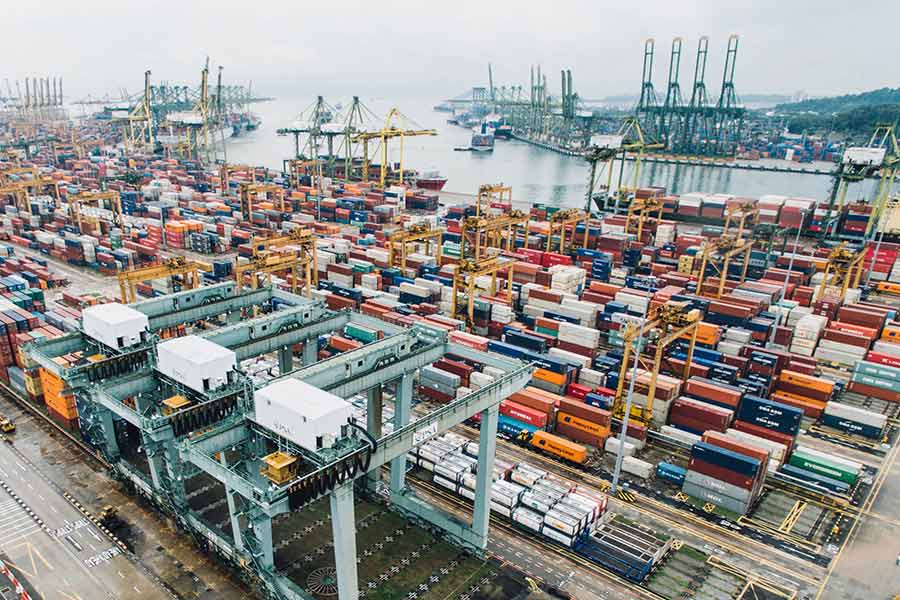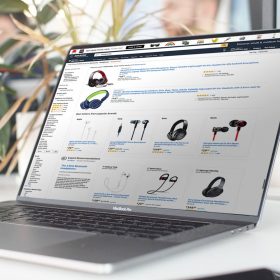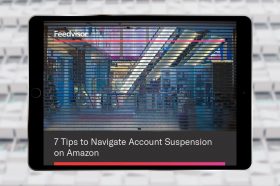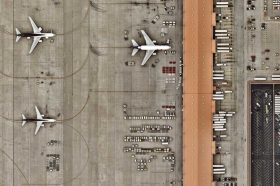Resources - Blog
Importing Private Label Products for Amazon FBA

Your products will cross borders, move in and out of warehouses, and ride across the ocean or fly far above continents. After traveling nearly 8,000 miles, they will at last reach their final destination: your warehouse, your home, or an Amazon FBA fulfillment center in the United States.
For any private label seller, shipping products directly from a Chinese supplier can be a game-changer. Done correctly, you will save time and money; however, you will also enter a new world of logistical complexity. While importing your products does require research, it is a worthwhile way to scale up your operations.
In this post, we take a closer look at the overall process to give you a starting point for your research and a clearer idea of what it takes.
Stay on top of the latest e-commerce and marketplace trends.
The Journey
Before we dive into the details, you should have a general idea of the journey itself. Once your supplier starts production, you will typically go through the following steps to import your products into the United States via air or ocean freight:
- You should decide on whether to hire a third-party inspections company in China or not.
- You should decide on a destination: your warehouse, house, or an Amazon FBA center.
- You should decide on the incoterms with your supplier. These terms determine the extent to which your supplier is responsible for shipping your products to you.
- Depending on those terms, you might need to hire a freight forwarder who will arrange the necessary paperwork and the entire process of transporting goods.
- You will need to find a customs broker, if your freight forwarder doesn’t offer this service.
- Submit your Importer Security Filing to your customs broker for ocean freight.
- Your shipment will be dispatched.
- You will then need to provide all shipping documents to your customs broker.
- Once your shipment arrives, your customs broker clears it with customs.
- You pay the freight forwarder.
To note, the process is not the same for air courier shipments which are much faster but substantially more expensive.
Understanding the Key Stages
Understanding the Key Stages
Before you actually do import your products, you will need to make a number of key decisions. The more significant ones are discussed below:
Quality Assuring Products in China
Even if you have approved product samples beforehand or received a shipment with an early “pre-inspection” batch of products, you should still have your products inspected before they are imported. Your supplier may say that they have a quality control team; however, you will likely want to hire another third-party company to inspect your products. That is because, your supplier’s quality assurance team might have conflict of interest issues and might not be very well trained.
While some FBA prep services in the USA offer quality assurance, having your products inspected stateside makes less sense. Why go through the expense of shipping a large quantity of products to the United States, only to realize that they should be returned? By inspecting products in China, you can catch and fix errors that might otherwise wreck your Amazon business.
Deciding on a Destination
Deciding on where to ship your FBA products will impact how much money and time you can save. For example, shipping to multiple Amazon fulfillment centers might be more ideal than shipping to your warehouse or home first. After all, you may still need to break up your shipment and send your products to other fulfillment centers.
To limit the number of destinations, you can use the Inventory Placement settings in Amazon Seller Central. This setting allows you to send all of your products to one Amazon fulfillment center. You will need to carefully consider whether this option makes sense, as you will be charged at least $0.30 per item.
You might also send your products to an FBA prep service near the port of entry once your products arrive in the United States. By finding a prep service nearby a port, you can possibly reduce trucking costs to move your inventory. Your supplier may also offer FBA prep services; however, before you rush to use them, you will need to deeply investigate whether they have an exceptional track record of pleasing importers. Amazon’s FBA shipping and labeling requirements are very strict. If you do not follow them, Amazon might refuse your shipment outright.
Incoterms
To import your products, you will need to reach a contractual agreement with your supplier on the incoterms. Incoterms stands for “International Commercial Terms”. These terms establish to what extent your supplier is responsible for shipping your products to their final destination in the United States. The agreement defines the risks, costs, responsibilities, and transportation logistics between you and the supplier.
There are many different varieties of incoterms, with EXW and FOB being the most common. EXW or “Ex Works” provides that the supplier is responsible for manufacturing your goods and making them available for pick-up at their factory or warehouse. In this case, your supplier will charge you for manufacturing the goods while the rest of the risks and responsibilities will be on you the buyer. You are ultimately responsible for hiring a freight forwarder to ship your products to your final destination. Depending on your shipment method, the supplier will also prepare a Bill of Lading, if you are shipping by sea, or an Air Waybill, if shipping via an airplane.
FOB, or “Free On Board”, applies only to sea freight. It provides that the supplier will arrange for shipping your products to the seaport in their country and loading them onto the vessel. In this case, your supplier is responsible for handling all the documentation needed to pass Chinese customs. Your supplier will charge you for manufacturing goods and having them shipped and loaded. You are ultimately responsible for making arrangements to have your goods shipped to the United States, cleared through customs, and sent on to their final destination.
Private label sellers who are just starting out will want to ease into incoterms that require more involvement on their part. For example DDU, or “Delivered Duty Unpaid” is the opposite of EXW. The supplier does all work and bears all responsibility in shipping your products to their final destination. Obviously, this service will cost more than other incoterms.
Shipping Method
Private label sellers can choose between ocean freight, air freight, and air courier. Freight covers shipments that are 150 lbs. or more. Ocean freight tends to be the most cost-effective, particularly for very large shipments; however, it is the slowest. Your products can take anywhere between 30 to 40 days to reach the United States. Air freight costs more but takes up to 10 to 15 days. Ideal for lighter, smaller shipments, air courier tends to cost the most but is the quickest at three to five days.
As with many other decisions, you will need to calculate which method makes the most sense given your timeline, budget, shipment weight, and how durable your products are.
Freight Forwarders
Many of the top shipping companies in the United States, like DHL, FedEx, and UPS also operate as freight forwarders. Freight forwarders do not simply ship products from point A to B. A freight forwarder makes arrangements for many of the more rigorous aspects of the import and export process, such as booking cargo space, negotiating freight charges, consolidating freight, insuring your products, filing insurance claims, and hiring any other third-party logistics companies.
If you are importing a very small amount of goods, you might consider foregoing a freight forwarder. However, to be clear, you will likely need to invest a substantial amount of time in managing logistics, shipping documentation, and customs forms. Freight forwarders organize much of this process.
Customs Brokers
Customs brokers are licensed professionals who streamline the process of importing goods on your behalf by ensuring that you are following all U.S. Customs rules and regulations. A customs broker will organize, complete, and sign the many customs forms required. In addition, if your goods are worth $2,500 or more, your customs broker can also post the required Customs Border Protection Bond for you. The bond serves as insurance for the U.S. government that you will pay the fees owed. Fortunately, many of the larger freight forwarders offer customs brokers as a service.
Bottom Line
As you can see, importing your products into the U.S. isn’t quite as simple as filling out a few forms, sending emails, or paying dues. The first step for any private label seller should be to thoroughly research each step of the process. We have touched upon the more major decisions you will make; however, those are just a few. Each can quickly become more complex. In the end, you will need to strike a balance between your timeline, your budget, and the services offered by your supplier and freight forwarder.




